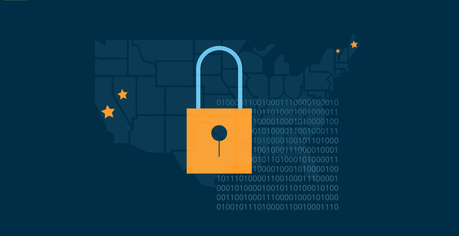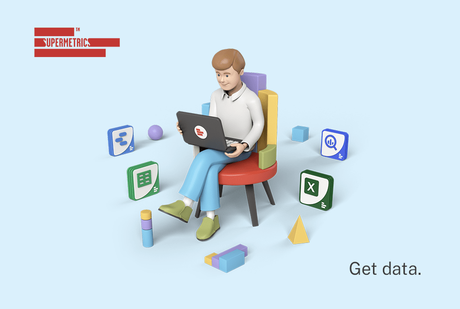Data ethics is still a relatively recent notion when compared to the marketing timeframe. Marketing data ethics, in general, refers to the ethical considerations that must be made when collecting, using, and sharing data. This might range from ensuring that data is acquired fairly and responsibly to safeguarding people's privacy to being open about how you utilize data.
Data ethics in marketing has gotten a lot of attention in the last decade for a variety of reasons.
To begin with, the amount of data that businesses acquire has skyrocketed. This has raised worries about how the data is used and the ramifications for customer privacy and society as a whole.
Second, data analytics in marketing has advanced, allowing marketers to target consumers in increasingly narrow and particular ways. As a result, questions have been raised regarding whether firms are using this information ethically.
Finally, the growing number of high-profile data breaches has increased public awareness of the dangers of data collecting and storage. A peek at the World's Biggest Data Breaches and Hacks, published by 'Information is Stunning,' provides not only a beautiful picture but also a wake-up call for any marketer.
In marketing, there are four advantages to data ethics.1. The focus should be on your customer.
The user should always come first in marketing. Customer centricity refers to a business approach that prioritises the customer over short-term income for investors. In other words, a data ethics approach to digital marketing prioritises the user's wants and interests, ensuring that they are treated fairly and respectfully at all times.
When a company is customer-centric, it strives to understand what its consumers want and need-and this should extend to how it collects, stores, uses, and shares data, resulting in stronger customer relationships and increased sales and profits.
2. It fosters trust.
It's not only the morally correct thing to do; it's also frequently a legal requirement. Users will trust you more if you follow a data ethics approach because they will know that their best interests are always being considered. One of the most fundamental parts of marketing is trust, which is the cornerstone of any connection. Furthermore, every step toward a greater data ethics is a step toward reducing legal risk.
Honesty and transparency in all of your marketing messages can help you build trust, and this should include how you plan to use the data you collect about your clients. Customers will form long-term connections with you if you are honest, upfront, give them control, and keep your commitments.
3. It's beneficial to business
It's also good for business to take a data ethical strategy. Users who have faith in a company and believe their best interests are being protected are more inclined to do business with it and promote it to others. Customers are more likely to remain loyal to a company if they feel valued and heard. This devotion may result in repeat business and recommendations, boosting sales and profitability while cutting marketing expenses.
4. It's the future, after all.
Data ethics will become the standard as more organisations take a data ethics approach to digital marketing, and those who don't will be left behind. Data ethics, like environmental pledges and an inclusive work environment, will fast become brand equity. A company with a track record of carelessness and inadequate privacy policies will be unable to compete with a competitor who has a clear ethical stance.
There are two ethical data questions to consider.
Without a doubt, data ethics is becoming a more prominent issue of discussion in the business sector. As our reliance on data and technology increases, so does the risk of misusing it.

While it is hard to totally remove the danger of data breaches or misuse, companies can take a number of steps to improve data ethics in marketing. First and foremost, companies must be open and honest about how they gather and use customer data.
Customers should be informed about what information is being gathered, how it is being used, and how their privacy is being protected. Not only is it required by law, but it is also the right thing to do.
Businesses must be accountable for data acquisition and use in addition to being transparent. Only legitimate business purposes should be collected, and data should be kept secure at all times. Customers should have the option to alter their minds and opt out of data gathering even after giving their consent, and firms should never sell or disclose consumer information without their consent.
These aren't new, and they're mostly covered by existing privacy laws. So, what are some things you can do right now to improve your data ethics hygiene?
1. Is it better to have first-party data or zero-party data?
Companies have begun to invest in gathering their own first-party data, which can comprise dozens or even hundreds of data points for each client, in order to lessen their dependency on third-party data.
While Forrester is credited with coining the term "zero-party data," which is defined as "data that a customer intentionally and proactively provides with a brand," this definition misses a key point: who controls the data.
What does this signify for the privacy of customer data? It's unclear whether people who freely submit their data completely comprehend how it will be used. Despite the fact that most businesses seek to protect the information they acquire from their consumers, some will fail to adequately secure that information, exploit it in potentially damaging ways, or sell it to anyone. Consumers' personal information will be stored in more databases as a result of the belief that collecting more first-party data is better.
The answer isn't additional first-party data, which will unavoidably put customers' privacy at danger. Consumers have full discretion over what they wish to share with which businesses, for what purpose, and for how long using zero-party data.
2. Minimization and integration of data
We've all seen Chiefmartec's stunning technology landscape, which shows over 8,000 MarTech solutions. A strong marketing plan involves looking at the ecosystem rather than silos, which necessitates data interoperability and integration. This is where Supermetrics and other such solutions come into play, and why they're so vital.

The term "data minimization" refers to the collection and use of the smallest amount of data necessary to achieve a certain goal. This is significant because it minimises the likelihood of data breaches and preserves individual privacy.
We've gone through data ethics, its advantages, and some cases and remedies. Because of the GDPR, data protection has gotten a lot of attention in marketing. However, data protection and privacy are not about the legislation, consent banners, or cookies.
To your consumers, demonstrating excellent data ethics is a value proposition. In the post-surveillance capitalism era, it's a mentality that will soon separate competitors.

